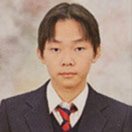Gaza citizens suffer from malnutrition due to the issue with poor food security

[Image of a girl waiting for a water supply, Photo credit: Unsplash]
The United Nations reported Gaza’s unprecedented rate of starvation as a consequence of the nationwide famine on July 27.
Gaza is a Palestinian territory situated between Israel and the Mediterranean sea.
According to IPC Alert, Gaza has reached the most severe level of food provision ever since they had a conflict with Israel; they underscored that out of 2.1 million population, roughly two thirds are facing starvation.
The IPC alert further specified that 470,000 thousand people are under IPC stage 5 and 925,000 people under IPC stage 4: each stage 5 and stage 4 refers to food insecurity and emergency-level hunger.
It is particularly concerning that children have been the major victim of the crisis, with the youth age group accounting for nearly 60% of the death numbers.
According to the WFP, the United Nations’ food assistance branch agency, the number of citizens undergoing malnutrition has continued to escalate, showing indication of decline.
Unfortunately, the authorities are viewing the future as exacerbating from the current situation if no adequate action is taken soon.
Francesco Checchi, a professor from London School of Hygiene & Tropical Medicine, stated “What I think is going to start happening inevitably, unless the situation changes radically in the next two to three weeks, is that there’s going to be a huge wave of children dying of common conditions and who otherwise wouldn’t have.”
Currently, Gaza’s famine is understood to stem from an insufficiency of agricultural infrastructures and medical confrontations; the problem is perceived as a consequence of Gaza and Palestine's historical and geographical situations.
Gaza became isolated from the main land of Palestine in the process of a long territorial dispute between Israel: the two highly religious countries have been conflicting in occupation of Gaza for over 70 years.
Limited contact with the central Palestinian government led Gaza to lean in a self-reliant way, causing a terrorist group called Hamas to born and occupy the region.
Upon formally establishing its governance in Gaza, Hamas proclaimed Israel as to be an occupying enemy state that has no authority to settle in the area; Israel proceeded to blockade the region in May of 2024 to fight against the terrorist group.
Due to restricted trade and limited diplomatic engagement with other nations, Gaza quickly ran into low life supply.
Furthermore, retaliatory attacks from Israel vandalized infrastructures in Gaza, which aggravated the famine.
With the crisis in Gaza drawing international attention, the World Health Organization (WHO) accused the Israel government for violating human rights, demanding to alleviate the starvation.
On July 26th, 2025, the Israel government unavoidably declared a tactical pause and conducted airdrops to assist the locals.
The Israel government promised further extensional support to the community of Gaza that are struggling in malnutrition.
Meanwhile, Donald Trump, the president of the United States, asserted that addressing Gaza’s starvation should be a collective global effort rather than solely relying on the action of the U.S, thereby placing responsibility on the broader global community.

- Jeongyun Lee / Grade 10
- Canadian International School Japan

![THE HERALD STUDENT REPORTERS [US]](/assets/images/logo_student_us.png)
![THE HERALD STUDENT REPORTERS [Canada]](/assets/images/logo_student_ca.png)
